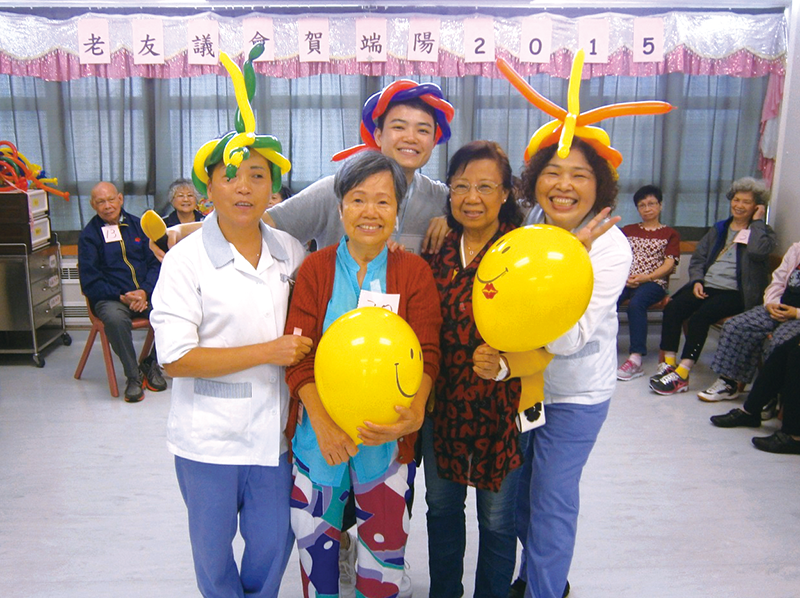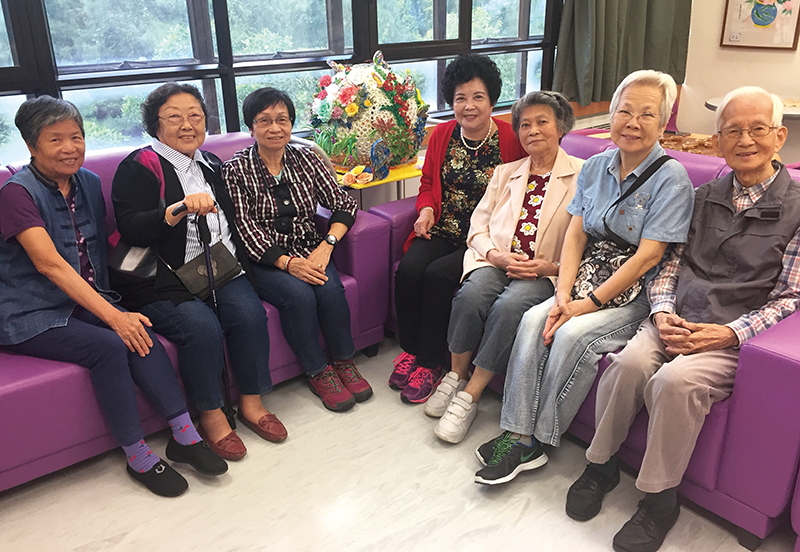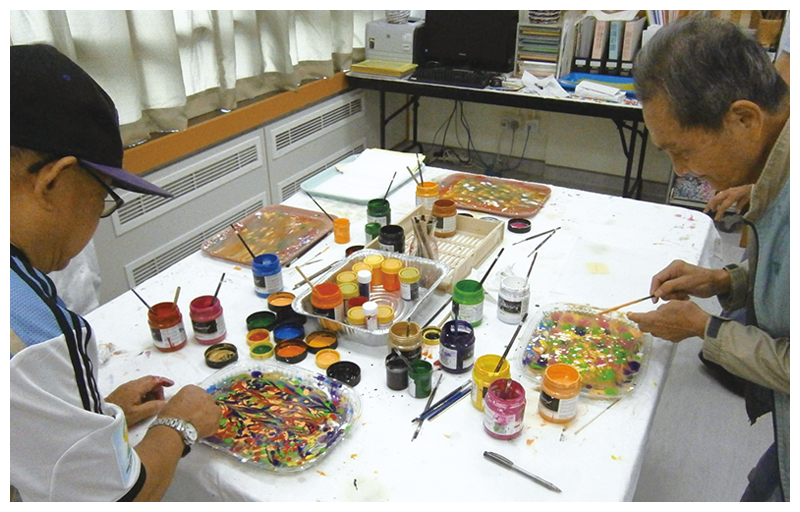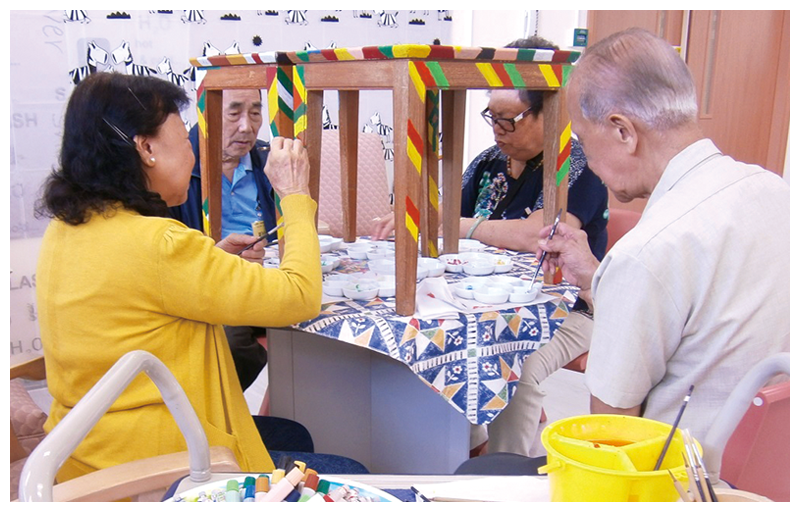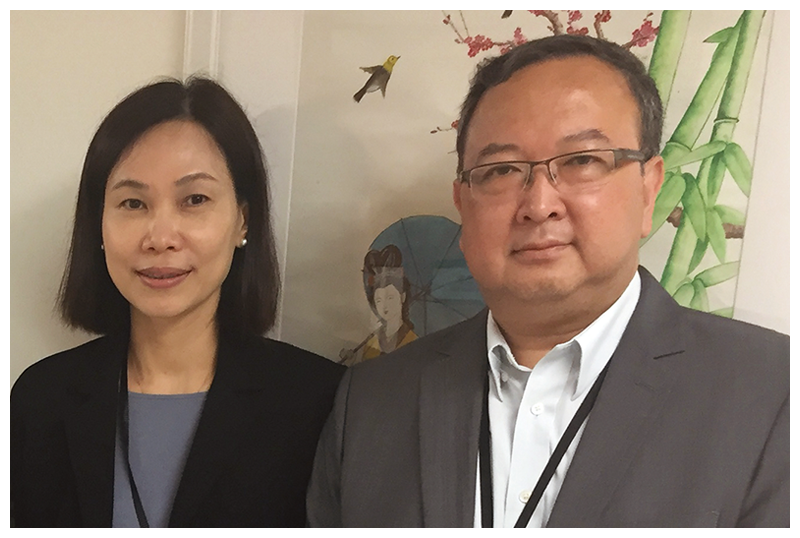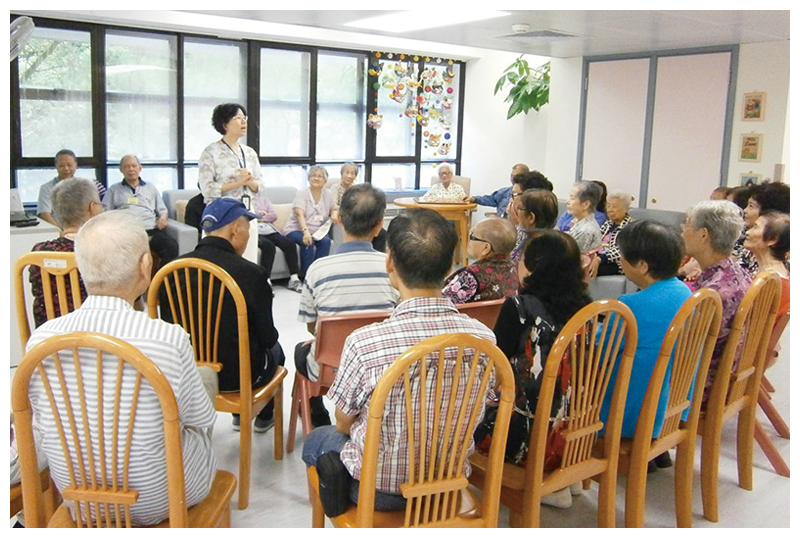Elders fight depression the nouveau way
According to government statistics in 2017, one in every 10 elders in Hong Kong suffer from depression.
Madam Chiu, aged 82, had once thought of committing suicide due to the death of her husband five years ago and the subsequent split with the sons and daughters of her husband and his ex-wife. “I didn’t want to come here (Psychogeriatric Ambulatory Care Centre (PGACC)) because I’m not a mental disorder patient. But nurses persuaded me again and again so I decided to come and take a look. The moment I set my foot in the centre, I was immediately amazed by how well-equipped, spacious and comfortable it is.” From disapproval to delight, Madam Chiu attributes her change in mentality to “the love and care of the healthcare team”, which she finds more important than medication and which has helped her stop overthinking.
Madam Shek, born in Mainland China and fell victim to the Cultural Revolution, moved to Hong Kong over a decade ago with her husband and daughter after retirement. Unfortunately, she soon noticed that her retirement pension was far from enough for her to afford a basic life in the metropolitan. Tight financial situation made her nervous and stressful. After being referred to PGACC, she has become more open and optimistic through taking part in various activities apart from timely treatment. She says, “I’m so glad to receive care from the team and I’ll remember everything I’ve experienced here by heart. The team is very considerate and professional.”
Established in 1999, Kwai Chung Hospital (KCH) Psychogeriatric Day Care Centre, which also known as PGACC, is located at L8 of the hospital. Most of its patients are referred by the KCH psychiatric general out-patient clinic and 80% of them suffer from depression. The centre is currently handling 75 cases.
Chief of Service, Division I, Dr Alison Lo and Consultant Psychiatrist Dr Karen Wat at KCH point out that some elder depression patients may not be able to integrate into elder centres in the community because of their complex needs and that the activities organised in those centres are not tailor-made for their special needs. PGACC serves as a bridge which allows recovering elders to receive treatment in a community-like environment. Meanwhile, the demand for hospitalisation of the elders with depression is effectively reduced.
Leung Cheung-on, Department Operations Manager explains the operation of the centre. The psychiatric team joins hands with occupational therapists, physiotherapists, clinical psychologists and medical social workers to design a series of rehabilitation activities, such as arts therapy, occupational therapy and physiotherapy, cognitive training, psychotherapy and outdoor activities, and conduct observation and assessment for timely professional treatment. When a patient becomes stable, the team will encourage them to return to the community, further their recovery journey and improve their quality of life.
COVER STORY
● More blood donors make mission possible
● Worker’s life saved after emergency blood transfusion
● From donor to recipient: 10-step journey
● All you want to know about blood donation
● Lesser known stories of blood donation
FEATURE
● Flashback: Recount of hospital development in Kowloon Peninsula
● History of QEH in 120 pictures
● Elders fight depression the nouveau way
● Elderly Council helps regain dignity and confidence
HELEN HA
WHAT'S NEW
● Collaboration key to preparedness for winter surge
STAFF CORNER
● Eat smart and fight flu! – Recommendations from Chinese medicine practitioner
● Eat smart and fight flu! – Recommendations from dietitian
● Policy Address supports HA with new funding
● 舌尖上的人情味 (Chinese version only)

